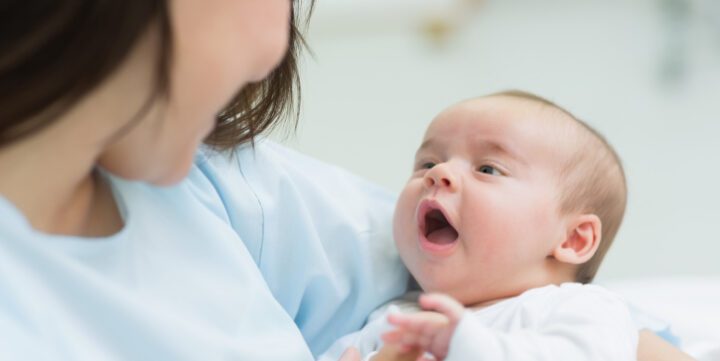Clinical Refresh: Postpartum Support
July 28, 2023
The postpartum visit
The time following childbirth, known as the postnatal period, presents a whirlwind of change and adjustment for new parents. Primary care physicians, specifically general practitioners (GPs), are optimally positioned to offer support, guidance, clinical treatment, and intervention for various physical and psychological concerns during this crucial stage. Despite the significant increase in morbidity for mothers and infants under one year during this period, research on postnatal care within primary care settings remains scant. While the role of GPs in antenatal care is generally clear, postpartum care in general practice varies widely due to the structure of maternity services across different Australian regions.
The postnatal stage, spanning from after the placenta’s delivery to six weeks post-birth (or up to 12 weeks as some suggest, encapsulating the “fourth trimester”), is a critical time for health education, preventive medicine, and treatment. The World Health Organization encourages a minimum of three postnatal contacts during this period, including a six-week visit. General practice offers a comprehensive, continuous, and coordinated care platform that addresses the needs of postpartum mothers and infants and lays the foundation for extended family-centred care.
Support for both mother and infant
According to current shared maternity care guidelines, the timing of the postnatal visit should reflect the woman’s needs and be flexible. The role of primary care providers in postnatal care is underscored, especially as women appreciate assistance in identifying health issues, discussing concerns, and receiving necessary support and reassurance. Nonetheless, there is a significant knowledge gap regarding the most effective community postpartum care approach, particularly regarding the role of GPs and other primary care physicians. Common postnatal complications such as fatigue, back pain, urinary and bowel issues, and breastfeeding difficulties affect a significant number of women. As many as 20% report problems with infant crying and sleep disturbances. Regular postnatal GP visits provide a chance to identify and manage these challenges before they escalate into more severe problems for both mother and infant. These visits also serve as a safety net for more serious conditions and a platform for guidance on parenting, contraception, and sexuality. In many cases, these visits reinforce the connection between the family and the GP, who will provide long-term care.
In Australia, it is generally recommended that both mother and baby have individual appointments lasting 20-30 minutes for assessment, physical examination, and vaccinations. The mother should bring the infant health record, pertinent documents including the discharge summary, and a list of discussion questions. An initial assessment by the general practitioner should encompass the patient’s history, a physical examination, as well as educational guidance and counselling related to continuing general and reproductive healthcare. Enquiries concerning the labour and birth process, particularly if there were any complications, gives mothers the opportunity to reflect and articulate their experiences or unanticipated results, and allows for an evaluation of existing or potential issues. If the birth outcome did not align with the mother’s expectations and hopes, counselling may be necessary.
History-taking in the postnatal period may include such concerns as:
– Pregnancy complications
– Labour and mode of delivery
– Perineal tears
– Bowel and bladder issues
– Immediate postnatal complications
– Length of hospital stay
– Breast concerns – pain with feeding, infant attachment, nipple damage
– Sleep
– Home situation/relationship concerns
– Maternal concerns about the infant
– Mental health assessment
– Sexual health, contraception and future pregnancy planning
– Immunisation status: enquire if antenatal pertussis was given; check rubella immunity status (measles, mumps and rubella vaccine should be offered if the patient is not immune)
– Resus status: if rhesus negative, ask whether Anti-D was recommended or given
Assessments
The mother’s assessment should include a history, physical examination, and counselling regarding ongoing general and reproductive healthcare. Discussing labour and birth, including complications, can provide the mother an opportunity to express any concerns about the birth experience. Follow-up of antenatal comorbidity, such as hypertensive diseases and gestational diabetes, is essential for improving long-term health outcomes. Perinatal mental health should also be a focal point in primary care postnatal visits, as it supports the emotional bond between mother and baby.
There are a range of common symptoms and conditions following childbirth, the most common including but not limited to:
– Tiredness/exhaustion
– Backache
– Pain – general pain management and assessment of any perineum/lower uterine caesarean section (LUCS) wound
– Sexual problems
– Haemorrhoids
– Relationship complications
– Bowel problems and urinary incontinence
– Exploration of contraception options
– More upper respiratory tract infections (URTI) than usual
– Anaemia
– Endometritis
– Wound infection
– Thyroid disorders
– Mastitis/breast engorgement
– Postpartum depression
– Complications of pregnancy related conditions
It is important to ask about the labour and birth, allowing the mother to debrief and address any issues she has, helping your assessment of possible complications. History and examination should be directed to addressing maternal concerns and identifying common conditions affecting mothers postpartum. Specifically enquire about vaginal blood loss, perineal or caesarean section wound pain, tiredness, backache, urinary symptoms, bowel movements, rectal bleeding, breast and nipple tenderness, sleep patterns and mood. Ask the mother how she feels about the baby, and how the baby is feeding, settling and responding.
A summary of suggested physical examination activities recommended by the RACGP is as follows:
– Monitor for signs of anaemia
– Assess blood pressure
– Assess breasts and nipples
– Educate around breastfeeding position
– Assess perineum – check wounds
– Assess LUCS wound
– Investigate thyroid changes
– Investigate uterine fundus
– Assess urine – exclude UTI, protein, glucose
Secondary to these initial assessments, the RACGP recommend the following investigations be considered at the postpartum visit:
Full blood examination: asymptomatic women with anaemia should be treated with oral iron therapy. Symptomatic women with a Hb <9.0 g/L may be considered for blood transfusion
Iron studies: if microcytic anaemia – see above
Coagulation studies: if coagulopathy suspected as the cause of secondary postpartum haemorrhage (PPH)
Thyroid stimulating hormone/ antithyroid antibodies: hypo- or hyper-thyroidism
Midstream urine (MSU): exclude or treat UTI, may exacerbate incontinence
Glucose tolerance test: recommended in women with gestational diabetes or consider if baby birth weight >4000 g, performed at 6 weeks (if normal, repeat every 2 years)16
Pap test: if due, do 6–8 weeks postpartum to allow cervical inflammatory processes to return to normal
Rubella antibodies: give MMR if rubella antibodies are low Rhesus antibodies If Rh negative and there is concern about isoimmunisation
Vitamin D levels: women who have low levels during pregnancy should continue supplementation during breastfeeding. Babies should be offered 0.45 mL Pentavite daily; seek paediatric advice when baby is weaned
Vaginal/wound swabs: may not be of benefit in perineal infection or endometritis as causative organisms are usually commensal
GP care postpartum
In conclusion, the profound transformations that follow childbirth underscore the pressing necessity to closely monitor both newborns and new mothers. This is not a process confined to immediate postpartum weeks, but one that extends over the course of several months. It is paramount that a holistic approach be adopted, taking into consideration the mother’s physical health, which might be affected by the rigours of childbirth and postnatal recuperation, as well as her emotional and mental wellbeing, which could be influenced by the new responsibilities and drastic life changes parenthood introduces. Through significant research in this area, we know that postpartum depression may begin to affect mothers in this period, and is essential to monitor and check in throughout the 4th trimester.
During this sensitive period, the emotional and mental health of a new mother should be given as much importance as her physical health. As she navigates the unfamiliar territories of parenthood, the assistance of health care professionals becomes crucial to help her distinguish normal adjustments from signs of more significant mental health concerns.
In essence, an intensive, comprehensive, and long-term postnatal care plan, founded on a close monitoring strategy, is a requisite to ensure the well-being of both the mother and the infant. By implementing this, GPs are fostering a healthier and smoother transition for women into this new phase of life, thereby contributing to the long-term health and stability of families.
Piejko, E. (2006) The postpartum visit – RACGP, RACGP. Available at: https://www.racgp.org.au/getattachment/66ebbe98-756e-42fd-b7d1-656aff649d0f/20060906piejko.pdf
Brodribb, W., Zadoroznyj, M. and Dane, A. (2013) The views of mothers and GPS about postpartum care in Australian general practice – BMC Primary Care, BioMed Central. Available at: https://bmcprimcare.biomedcentral.com/articles/10.1186/1471-2296-14-139












